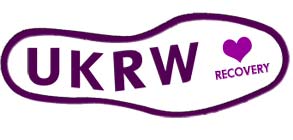Studies on addiction treatment ...... oh there are many but tonight i want to highlight one in particular, known as the National Longitudinal Alcohol Epidemiologic Survey,it indicates shock horror that first that treatment is not a cure-all, and second woe and behold that it is not necessary.
The vast majority of Americans who were alcohol dependent, about three-quarters, never underwent treatment. And fewer of them were abusing alcohol than were those who were treated.
Now im not saying that treatment can't be useful and neither did the study. But what it made clear was the most successful treatments are nonconfrontational approaches that allow self-propelled change.
Psychs at the University of New Mexico led by William Miller tabulated every controlled study of alcoholism treatment they could find.
They concluded that the leading therapy was barely a therapy at all but a quick encounter between patient and health-care worker in an ordinary medical setting. We at work currently use the FAST screening tool. Many patients then decide to cut back—and do!
As brief interventions have evolved, they have become more structured. A physician may simply review the amount the patient drinks, or use a checklist to evaluate the extent of a drinking problem. The doctor then typically recommends and seeks agreement from the patient on a goal (usually reduced drinking rather than complete abstinence).
In America more severe alcoholics would typically be referred out for specialized treatment. A range of options is discussed (such as attending AA, engaging in activities incompatible with drinking or using a self-help manual). A spouse or family member might be involved in the planning. The patient is then scheduled for a future visit, where progress can be checked. A case monitor might call every few weeks to see whether the person has any questions or problems.
The second most effective approach which mt workplace also currently provides is motivational enhancement, also called motivational interviewing. This technique throws the decision to quit or reduce drinking and to find the best methods for doing so back on the individual.
In this case, the therapist asks targeted questions that prompt the individual to reflect on his drinking in terms of his own values and goals. When patients resist, the therapist does not argue with the individual but explores the person's ambivalence about change so as to allow him or her to draw his own conclusions:
ie "You say that you like to be in control of your behavior, yet you feel when you drink you are often not in charge. Could you just clarify that for me?" I always feel a bit sneaky using this but thats just me and it dose prove worthy therfore justifies me feeling uncomfortable.
Miller's team found that the list of most effective treatments for alcoholism included a few more surprises.
Self-help manuals were highly successful.
So was the community-reinforcement approach, again a resource we currently provide which addresses the person's capacity to deal with life, notably marital relationships, work issues (such as simply getting a job), leisure planning and social-group formation (a buddy might be provided, as in AA, as a resource to encourage sobriety). The focus is on developing life skills, such as resisting pressures to drink, coping with stress (at work and in relationships) and building communication skills.
These findings square with what we know about change in other areas of life:
People change when they want it badly enough and when they feel strong enough to face the challenge, not when they're humiliated or coerced.
An approach that empowers and offers positive reinforcement is preferable to one that strips the individual of agency.
These techniques are most likely to elicit real changes, however short of perfect and hard-won they may be.

4 comments:
Thanks for highlighting this study for me! I've always suspected that simple, 'honest' interventions are the way forward.
Personally, I've found motivational interviewing techniques to bring great reward and a solid foundation for those in recovery to build on.
Thanks Kev, that solid foundation you speak of is so important and so vital to sustainable recovery, pity so many of the experts fail to see this. Keep up the good work I value what you do very much.
Thanks for writing this.
no worries rhona hope it helped in some way.
Post a Comment